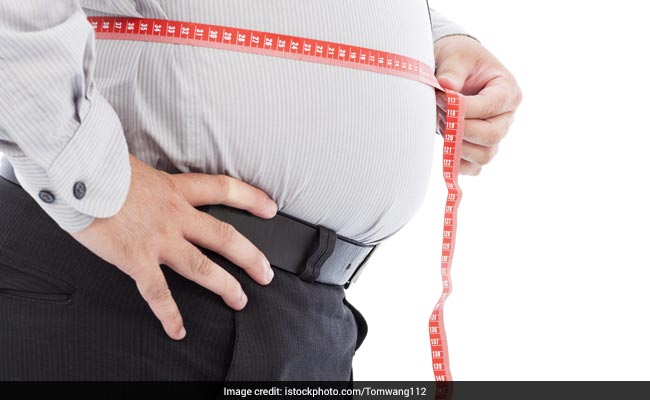Why Understanding the Distinction In Between Bloating and Fat Is Vital for Your Digestion Health
Understanding the difference between bloating and body fat is vital for enhancing digestion wellness. Bloating can be indicative of underlying intestinal problems or dietary sensitivities, while body fat represents a much more steady aspect of overall health and requires different considerations. Misinterpreting these 2 problems may result in inadequate strategies that overlook the source of pain. By making clear these differences, individuals can much better tailor their approaches to nutritional behaviors and way of life modifications. This exploration raises crucial inquiries regarding just how to efficiently take care of these differing elements of wellness.
Comprehending Bloating
Many people experience bloating at some factor in their lives, yet the underlying reasons and ramifications for gastrointestinal health can be complex. Bloating is defined by a sensation of volume or tightness in the abdomen, frequently accompanied by noticeable distension. This condition can emerge from different factors, including nutritional options, stomach conditions, and way of living habits.
Common dietary wrongdoers consist of high-fiber foods, carbonated beverages, and particular sugars that are improperly soaked up in the intestine. Lactose intolerance can lead to bloating after taking in dairy items, while extreme usage of beans may set off gas production. In addition, eating way too much or consuming also rapidly can exacerbate the feeling of bloating, as the body battles to refine huge quantities of food effectively.
Gastrointestinal conditions, such as short-tempered digestive tract disorder (IBS) or celiac illness, can additionally make complex the experience of bloating, as they frequently entail heightened level of sensitivity and impaired food digestion. Understanding the particular triggers and devices behind bloating is essential for reliable management and treatment, enabling individuals to make informed dietary and lifestyle modifications to advertise optimum digestive health.
Identifying Body Fat

Identifying the difference in between bloating and body fat is essential for understanding one's overall digestive system wellness and physical problem. Body fat refers to the fat that is kept in different areas of the body, functioning as an energy reserve and playing necessary functions in hormonal agent guideline and thermal insulation. It is essential to precisely identify body fat to examine wellness risks connected with extreme adiposity, such as heart disease and diabetes mellitus.
To identify body fat, people can utilize numerous techniques, including body mass index (BMI), skinfold dimensions, and bioelectrical resistance analysis. BMI is an extensively utilized device that correlates weight and height; nevertheless, it may not precisely reflect body make-up. Skinfold measurements entail pinching different areas of the body to evaluate fat thickness, while bioelectrical resistance uses electric currents to estimate body fat percent.
Aesthetic examination can likewise contribute in identifying body fat distribution, which can offer understanding right into wellness ramifications. As an example, visceral fat surrounding the organs postures higher health threats contrasted to subcutaneous fat located simply underneath the skin. Recognizing these subtleties is critical for taking on ideal wellness approaches and enhancing overall health.

Reasons For Bloating
Bloating can arise from a view it wide range of aspects that impact the digestion system, bring about pain and a swollen abdominal area. One typical reason is the consumption of air, which can happen while eating or consuming too rapidly, chewing gum tissue, or smoking cigarettes (difference between bloating and fat). This air buildup can produce a sensation of volume and stress
Dietary choices likewise play a substantial function in bloating. Specific foods, particularly those high in fiber, such as beans, lentils, and cruciferous vegetables, may bring about gas production throughout food digestion. Furthermore, carbonated beverages can introduce excess gas right into the digestive system tract.
Food intolerances and sensitivities, such as lactose intolerance or gluten level of sensitivity, are various other common root causes of bloating. When people consume foods my sources they can not properly digest, it can cause gas and discomfort.
Additionally, hormonal fluctuations, especially in women throughout the menstrual cycle, can add to bloating because of water retention and gastrointestinal adjustments. Underlying clinical problems, such as short-tempered bowel syndrome (IBS) or intestinal blockage, may additionally manifest as bloating, stressing the significance of suitable medical diagnosis and management. Comprehending these reasons is vital for reliable symptom administration.
Effect On Digestive Health
Persistent bloating can substantially affect digestion health, affecting general wellness and high quality of life. Bloating commonly results from the build-up of gas or liquid in the stomach system, causing discomfort and a swollen abdomen. This problem can disrupt normal digestive processes, impairing vitamins and mineral absorption and leading to deficiencies over time.
In addition, persistent bloating might be a sign of underlying food poisonings such as short-tempered digestive tract disorder (IBS), celiac illness, or food intolerances (difference between bloating and fat). When these conditions are left unaddressed, they can intensify symptoms and cause further problems, including constipation or looseness of the bowels
The emotional consequences of bloating should likewise be recognized. Constant discomfort can add to anxiety and anxiety pertaining to consuming and social interactions, further making complex one's connection with food and food digestion.
Approaches for Administration
Effective administration of bloating requires a complex method that addresses nutritional habits, way of living modifications, and possible medical treatments. Individuals should examine their diets, identifying and eliminating typical triggers such as milk, gluten, and high-FODMAP foods, which are understood to contribute to gas and pain. Integrating fiber gradually can improve gastrointestinal wellness, yet extreme fiber consumption need to be prevented, as it might aggravate bloating.

Stress administration methods, consisting of mindfulness and deep-breathing workouts, can also play a considerable function. fat and bloating. Anxiety is known to effect digestion feature adversely, bring about increased bloating
If way of life and nutritional modifications do not yield relief, speaking visit this site with a medical care specialist is a good idea. They may suggest diagnostic tests to rule out underlying problems such as Cranky Bowel Disorder (IBS) or food intolerances. In many cases, medicines or supplements may be prescribed to minimize signs successfully, making certain a detailed technique to handling bloating.
Conclusion
To conclude, identifying in between bloating and body fat is vital for advertising digestive system wellness. Bloating, typically resulting from nutritional choices or gastrointestinal concerns, requires targeted treatments to minimize pain. Conversely, body fat represents a secure element of body composition demanding different monitoring methods. Identifying these distinctions facilitates the application of effective nutritional changes and way of living adjustments, eventually adding to improved digestive wellness and overall lifestyle. Understanding these concepts equips individuals to make enlightened health decisions.